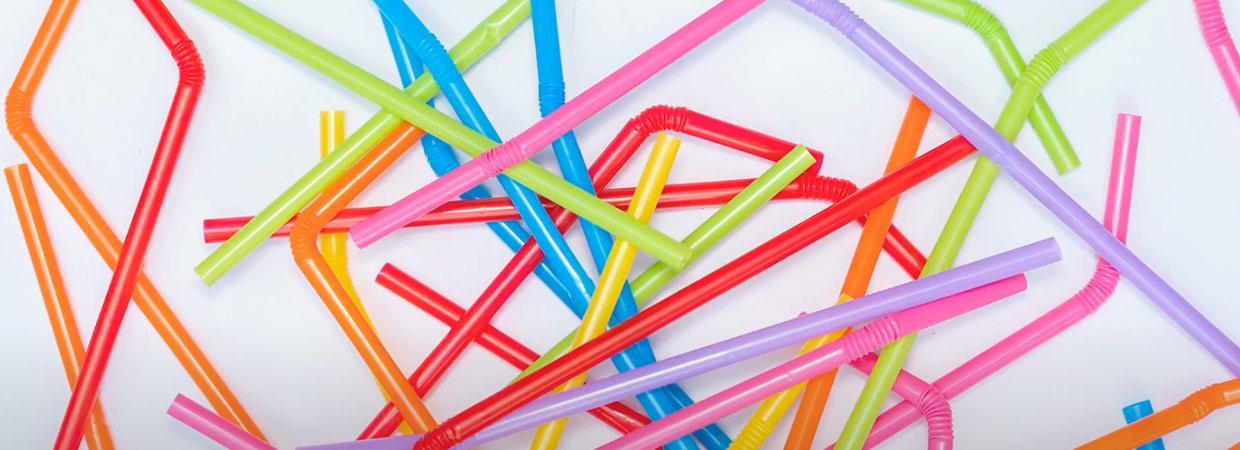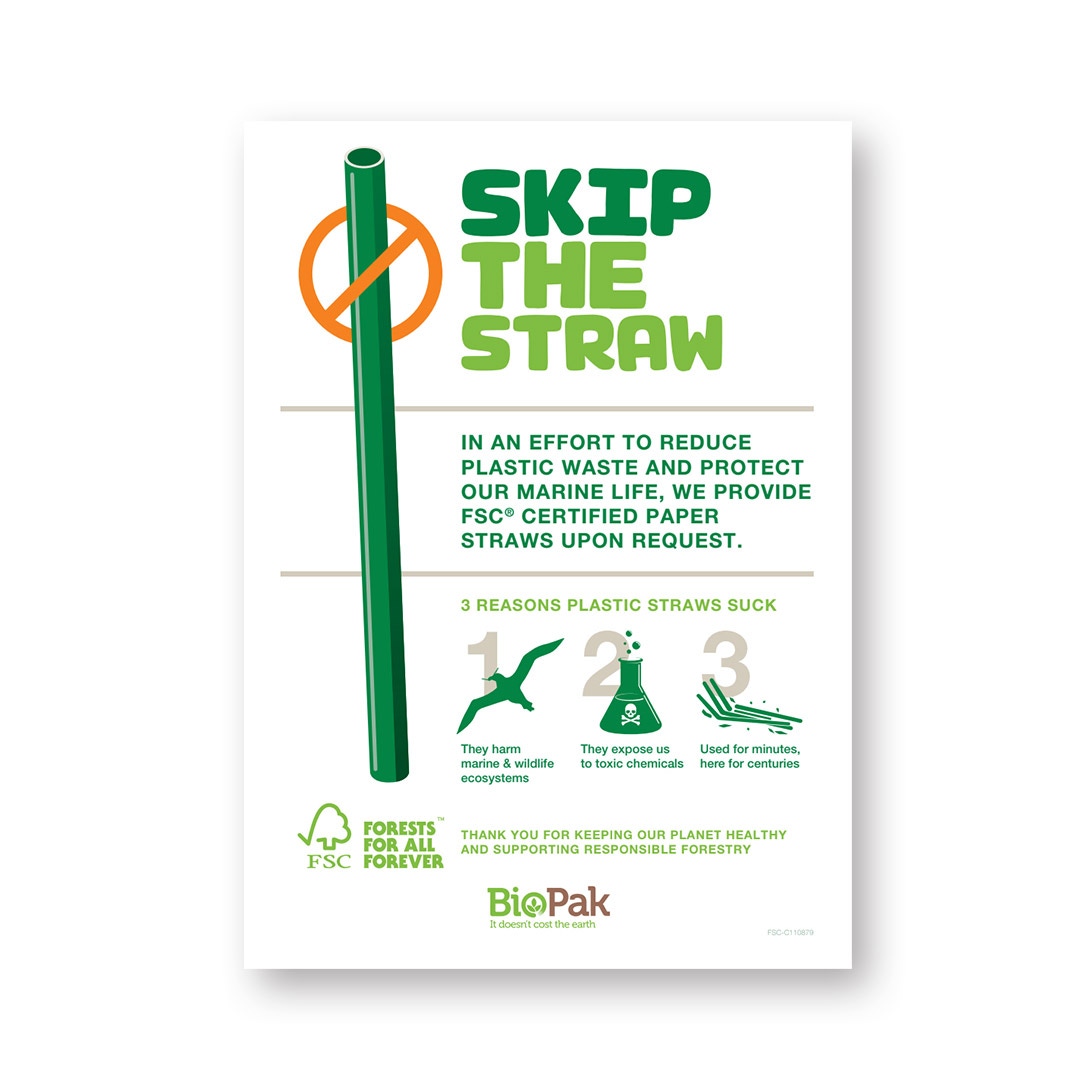What’s wrong with plastic straws?


1. A drain on finite resources
Conventional plastic straws are manufactured from polypropylene, a by-product of petroleum which requires a large amount of energy and natural resources to extract and refine. As consumers look for convenience, the demand for single-use food service ware disposables – like straws – is expected to continue rising. But producing more plastic straws to keep up with demand requires fossil fuel resources – participating in the depletion of finite resources and toxic emissions.


2. In the trash after only minutes of use
After their useful life of only a few minutes, plastic straws are thrown away. At best, they end up in the recycling but are difficult to pick out in the sorting process. This means they are rarely recovered and often ending up in landfills or incinerated.
3. Hundreds of years to biodegrade
How long does it take for plastic straws to biodegrade? It’s believed that straws take over 500 years to break down. And, if they end up in our waterways and oceans, plastic straws never biodegrade. Instead, they break down into tiny fragments known as microplastics.
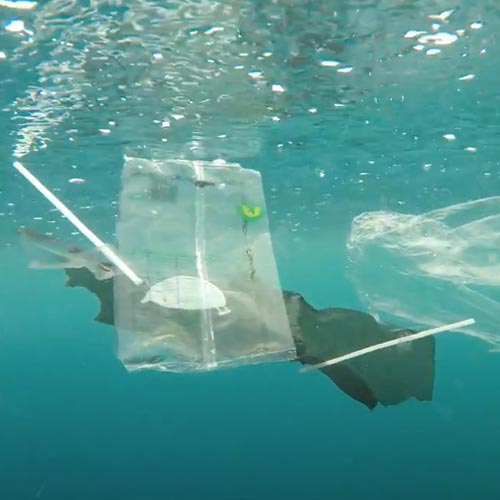

4. Plastic straws in the ocean
Plastic straws that end up in our waterways and oceans are often ingested by marine life and make their way up the food chain (fish eats plastic, humans eat fish). Millions of turtles, seabirds, and other wildlife die each year from complications directly related to plastic consumption. Microplastics also have been proven to migrate up the food chain and humans could be swallowing a credit card's weight in plastic every week.
Solution to plastic straws
In 2018, BioPak launched a range of plastic-free straws made from FSC™ certified paper. The Forest Stewardship Council™ (License code FSC™ C110879), is a non-profit organisation that sets certain high standards to make sure that wood, paper and other forest products are made with materials from well-managed forests, in a way that preserves the natural ecosystem and benefits the lives of local people and workers, all while ensuring it remains economically viable.
BioPak paper straws are considered processed fibrous organics and therefore suitable for compost feedstock. They come in regular, cocktail, and jumbo sizes with a wide range of designs – including Art Series designs. Plus, they can be customised with branding or unique personalised designs.
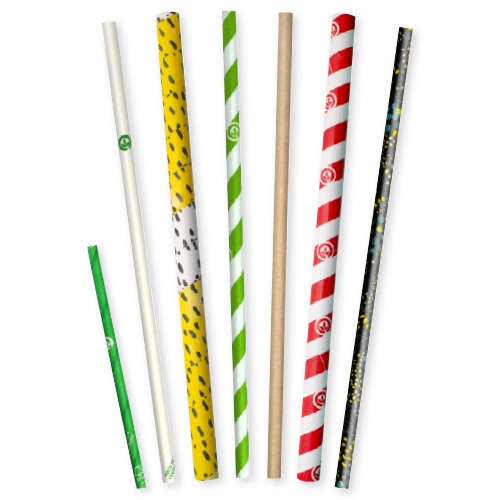

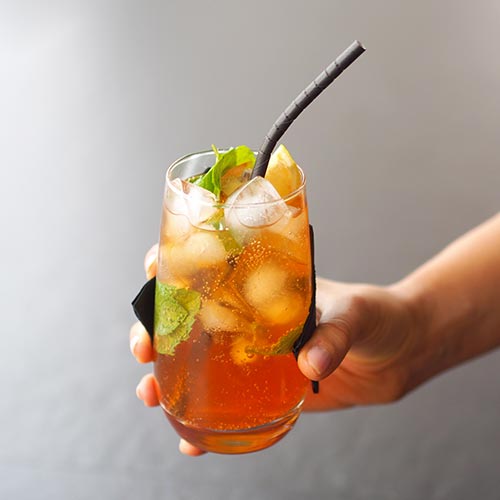

Adding your branding to packaging is a great way to advertise your brand, and extend a message of environmental awareness. Showing your support for the environment by choosing branded FSC™ straws helps connect with the conscious consumer, and position your business as a force for good.
While BioPak is a strong advocate of the ‘Skip the Straw’ campaign, for instances where single-use straws are used, we recommend sustainably-sourced paper straws that can be composted as a more environmentally-friendly alternative.
Why are paper straws better than plastic?
BioPak paper straws are better than plastic because they are:
- Made from sustainably sourced, renewable resources
- FSC™ certified
- Compostable
- Marine-life friendly









